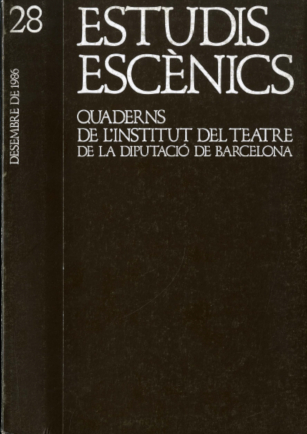Lucas Fernández: una retòrica afectiva per a la passió
Resum
Para un cristiano la muerte trágica de Dios debe constituir un momento de tensión emocional; un dramaturgo de la Pasión debe construir un lenguaje dramático capaz de expresar este grado máximo de sentimentalización. En esta situación se hallaba Lucas Fernández cuando empezó a escribir una obra para (más que sobre) la Pasión de Cristo. Es importante la retórica de la repetición en la cultura popular oral, que confluye en la obra de Lucas Fernández: al iniciarse el verso (anáfora) o seguidas (reduplicación o anadiplosis). También es muy significativo la acumulación de interjecciones, el uso de un mismo verbo en diferentes tiempos o de palabras con la misma raíz. Asimismo, podemos considerar las estructuras paralelísticas y la densidad de sinónimos en unos pocos versos. Lucas Fernández también articula dos discursos seguidos, uno con connotaciones positivas muy marcadas y el otro con connotaciones negativas. De hecho, podríamos considerar el Auto de la Pasión como una hipérbole continua que lleva el sentimiento de angustia a una situación límite. Las preguntas sin respuesta van dirigidas a Dios o a los judíos, los dos polos de la obra. El apostrofe se utiliza para dirigirse a Dios en segunda persona, como sucede en la canción final. Cabe destacar el uso repetido y fecundo de las figuras patéticas, incluso de la optación, la súplica y la imprecación. Los aspectos de espectacularidad visual son también importantes. No nos hallamos ante una obra primitiva, sino ante un autor que sabe usar múltiples recursos.














